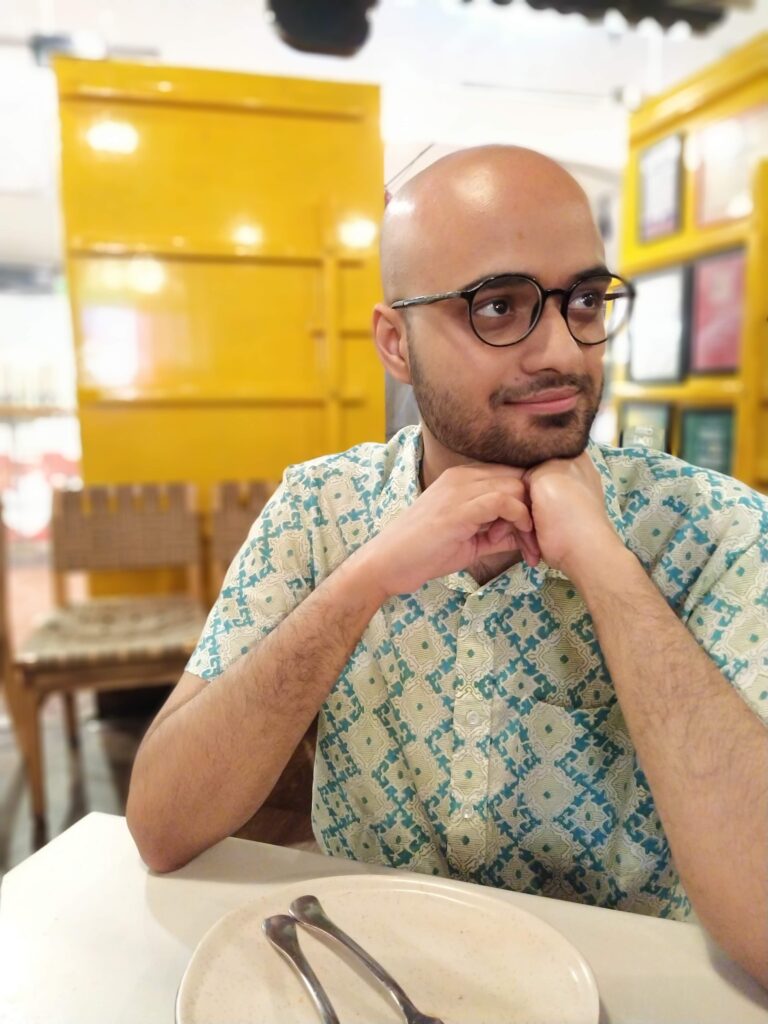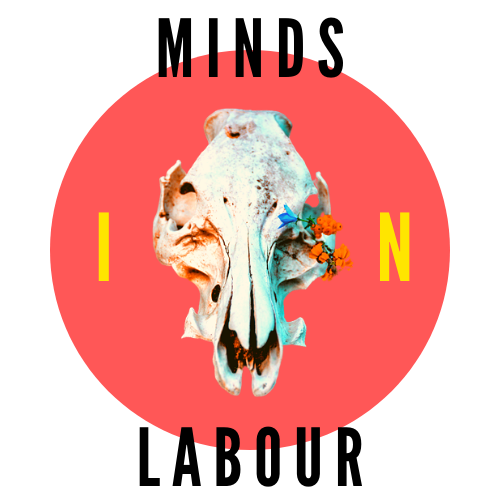
DHRITIMAN RAY
Mental Health Counsellor | He/Him
MSc Global Mental Health, University of Glasgow (2021)
MA Psychology, University of Delhi (2017)
PhD in Mental Health and Well-being, University of Nottingham (Ongoing)
Languages: English, Hindi, Bengali
SPECIALIZATION & EXPERIENCE
I usually work with individuals between the ages of 15 and early 30s. The bulk of my work concerns emotional issues like anxiety, depression, trauma, grief, guilt, feeling nothing and so on. I am queer friendly and trauma-informed. I only work with individuals at this point since I have not been trained in family or couples therapy.
I started my private practice back in 2019. Before that I was working with various organizations, mainly NGOs, as a counsellor. For more details about my work experience you can refer to my Linkedin profile. 🙂
THERAPEUTIC MODALITIES
My work revolves around the needs of the client. Therefore, I utilize a pluralistic framework where multiple philosophies, therapies, and techniques are combined in the treatment plan.
I have been trained in:
- Humanistic Counselling
- Cognitive Behavioural Therapy
- Solution-focused Brief Therapy
- Narrative Therapy
- Trauma-focused Therapy
Although, I have never officially trained in it, psychodynamic theories also inform how I understand my clients, what is going on between us in the therapeutic space, and what are the aims of the therapeutic process. Since I have not been trained in it, I do not use the techniques of psychodynamic therapy as such.
FEE
For my private practice I charge
- Rs.1500 for individuals not currently employed
- Rs.2500 for professionals and students
- Rs.4000 for individuals working outside India.
Please note that one session is usually 50 minutes long.
BOOKING PROCESS & SESSIONS
My work revolves around the needs of the client. For inquiries or starting therapy with me, you can fill this form or click the button above. Usually I like to contact my clients via email or a brief phone call before starting therapy in order to answer any questions that they may have. You can also refer to this document which answers some of the most common questions regarding therapy.
As of now, all of my sessions are conducted online. Based on your comfort, we can have audio or video sessions.
For regular communication I prefer Signal messenger because of its robust privacy settings. Otherwise we can communicate over email or WhatsApp.
RHYTHM, PAUSES AND TERMINATION OF THERAPY
A consistent rhythm is crucial for the therapeutic process to be effective. A standard rhythm looks like having one session a week. This frequency can increase or decrease based on the client’s needs.
It is very common for a client to feel that some parts of them don’t want to be in therapy. It is absolutely crucial in these times to have a discussion about this with the therapist regardless of the final decision to continue or discontinue therapy. Once the therapeutic process has started, abruptly pausing or ending it is usually not a great idea.
Terminating therapy – either because the therapist and client feel that their goals have been attained or they feel that the process is not working for the client — also needs to have a rhythm. Usually multiple sessions are needed to terminate therapy where the client and therapy can discuss the reasons of termination, whether any additional resources are required, the journey they’ve had together, or the emotions that specifically come up during termination.
CANCELLATION POLICY
Sessions. once booked, can be cancelled up to a day before the booked slot. If the session is cancelled after that, that session will be chargeable. If a client books a session and doesn’t show up for it or cancels it after the session timings, then once again the fee for that slot needs to be paid. Only medical emergencies are exempt from this rule.
If a clients fails to show up for two consecutive sessions, then that slot would be offered to a different client. The client who fails to show up shall be added to the wait-list and the next session will be offered only when a slot opens up.
There are two reasons for this cancellation policy. First, I have extremely limited slots, and cancellations without prior notice usually affects other clients’ ability to access slots. Second, I feel that this policy gives clients a reasonable time-frame to cancel or change slots while respecting my time constraints and commitments.
If there’s any discomfort regarding this policy, then I am open to having a discussion about it.
MY PHILOSOPHY
MENTAL HEALTH
I am still in the process of defining what this term exactly means for me both as an individual and as a counsellor. However, I am very clear that I don’t just see it in terms of disease or a lack of disease.
In my therapeutic practice I focus on the client’s needs, their experiences of psychological pain, and the things in their life and in their own self which gives them strength and help them grow.
Moreover, I also recognize that much of the distress that a person feels is usually an authentic reaction to their environment. Thus, I don’t locate the problem just inside the individual unlike some medical practitioners. More often than not, especially in India, much of the distress is a result of diseased social systems rather than individual “pathology”.
DIAGNOSIS
My work focuses on the specific needs of the client and diagnostic labels play a secondary role. I seek to understand my client as a person first and then locate any applicable labels within this larger context.
For me diagnostic manuals play a role similar to dictionaries where both the client and the therapist seek words to describe patterns of experiences. However, this exploration of labels is not limited to medical manuals in my practice. Sometimes medical labels hinder the well-being of a person, and in that case I am comfortable in moving out of the diagnostic framework.
Please note that I cannot officially diagnose anyone since I am a counsellor. Only psychiatrists or clinical psychologists are authorised to diagnose people in the Indian medical system.
GENERAL AIMS OF THERAPY
Goals in therapy will naturally be different for different individuals. However, in my practice I have some broad therapeutic aims that usually inform my practice. These include:
- Have more meaningful relationships with other people, yourself, your work, and the broader world
- Managing and tolerating negative emotions and psychological pain without pushing them aside or being overwhelmed
- Accessing multiple parts of yourself so that you can react flexibly to life and have a richer inner world
- Expanding your emotional horizon – broadening your range of emotions
- Tolerating psychological ambiguity and conflicts
- Making space for reflection, especially between action and reaction
- Understanding and accepting yourself better
THERAPEUTIC RELATIONSHIP
According to me (and a lot of research) the core of the therapeutic process is the relationship between the client and the therapist. For more information you can refer to this article.
I assume that the client is the expert of their own life and my expertise is in accompanying them in their inner journey along with my knowledge of psychology. Thus, essentially, the therapeutic relationship is a partnership that focuses on the client’s needs.
This is very different from a doctor-patient relationship. Usually the patient is expected to simply report their symptoms and the doctor’s role is to tell them what to do and what is good for them. The therapist is not supposed to tell the client what is right and wrong, or make decisions for them. Instead the therapeutic relationship is egalitarian and non-judgemental. This forms the core of the healing process instead of any standard techniques.
